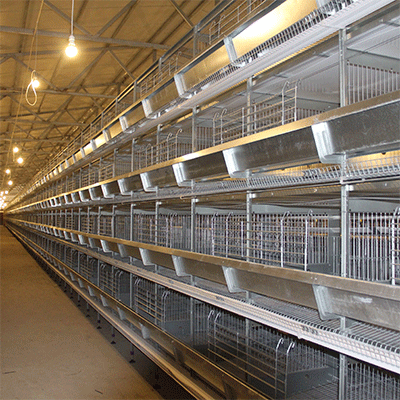Current status and challenges of poultry farming in Ghana
- font size decrease font size increase font size
As a West African country, poultry farming has always been an important part of Ghana's agricultural economy. However, poultry farming in Ghana faces some challenges and is gradually adopting modern equipment, such as layer chicken cages in Ghana, to improve production efficiency.
Poultry farming in Ghana is mainly concentrated in rural areas, dominated by small-scale family farms. Traditional free-range farming methods limit production efficiency to a certain extent because they are susceptible to disease, weather and food supply. In addition, poultry manure management is also an issue as lack of proper waste disposal facilities can lead to environmental problems.

To address these challenges, more and more Ghanaian poultry farms are adopting modern equipment such as stacked chicken cages. These chicken coops can accommodate large numbers of chickens, provide proper ventilation and sanitation, and make it easier to manage feed and water sources. In addition, they help reduce the spread of chicken feces, thereby mitigating environmental pollution problems.
However, introducing modern equipment also comes with cost and training challenges. Purchasing and installing stacked chicken coops requires an investment, and farmers need training to know how to manage the equipment effectively. Governments and NGOs are taking steps to provide funding and training to help farmers make better use of these technologies.
In general, poultry farming in Ghana is developing in a more modern, efficient and sustainable direction. As a modern equipment, cascading chicken cages are helping farmers increase production and reduce environmental impact.

